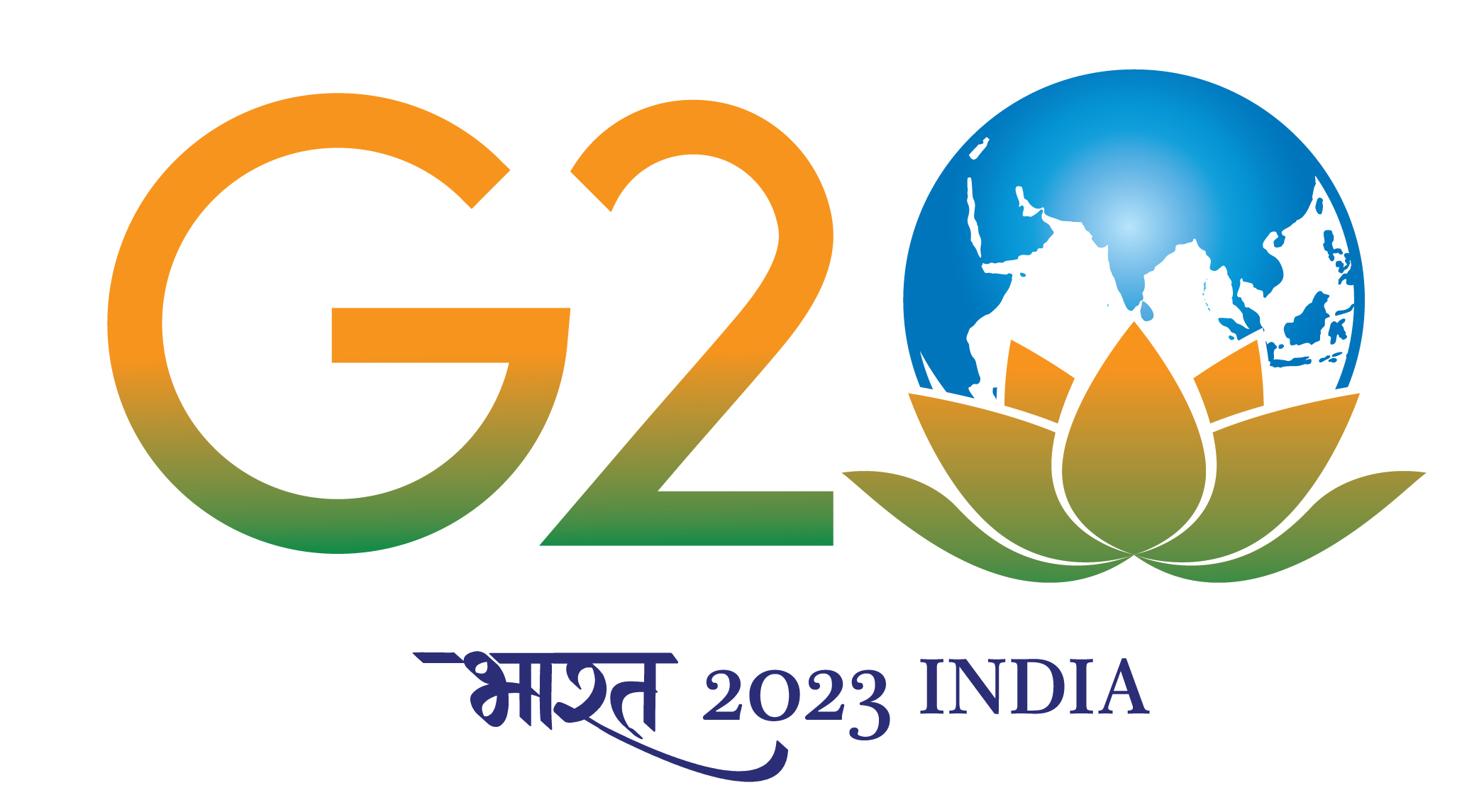Environmental Engineering
- Environmental Engineering
- Department Details
- Facilities
- Faculties
- Academic Calendar
- Syllabus
- Events
- TimeTable
- Industry Advisory Board
Undergraduate / Postgraduate Programmes
| Programme | Environmental Engineering |
|---|---|
| Year of starting | 2009 |
| Level | UG |
| Intake | 60+3+15 (Approved Intake+TFW+EWS) |
| Contact Email | hodenvironmental@gecv.ac.in |
Tour to Environmental Department
Vision
- Develop competent environmental engineers to meet growing technological and socio economical needs of our nation.
Mission
- 1) Create, deliver and integrate knowledge of environmental engineering.
- 2) Serve as a reliable and capable resource for society through consultancy and IRG.
- 3) Maintain intellectually challenging and collaborative environment for growth and development of the department.
- Develop faculty and students to meet challenges.
- 5) Imbibe ethical values in environmental engineering practices.
Program Educational Objectives (PEOs)
- Plan, design, analyze and sustain environmental structures and provide solutions that meet public health, safety, and welfare of society.
- Function effectively and follow human values and ethics with team spirit in every environmental engineering aspect undertaken.
- Design solutions for complex Environmental Engineering problems to meet the needs of the society with respect to sustainable development.
Program Specfic Outcome (PSOs)
- Use advanced abilities & technical capabilities in order to find workable solutions of Environmental Engineering problems as a professional respecting diversified cultural.
- Engage in ongoing learning and professional development through higher education.
- Apply leadership skills and take initiatives to achieve advance professional goals with commitment to ethical standards.

Prof. Kyati K. Modi
Assistant Professor (HOD)
M.E (Environmental Management)
PhD (Pursuing)

Prof. Monali N. Chaudhari
Assistant Professor
M.E (Environmental Management)
PhD (Pursuing)

Prof. Meera K. Kunvarani
Assistant Professor
M.E (Environmental Management)
PhD (Pursuing)
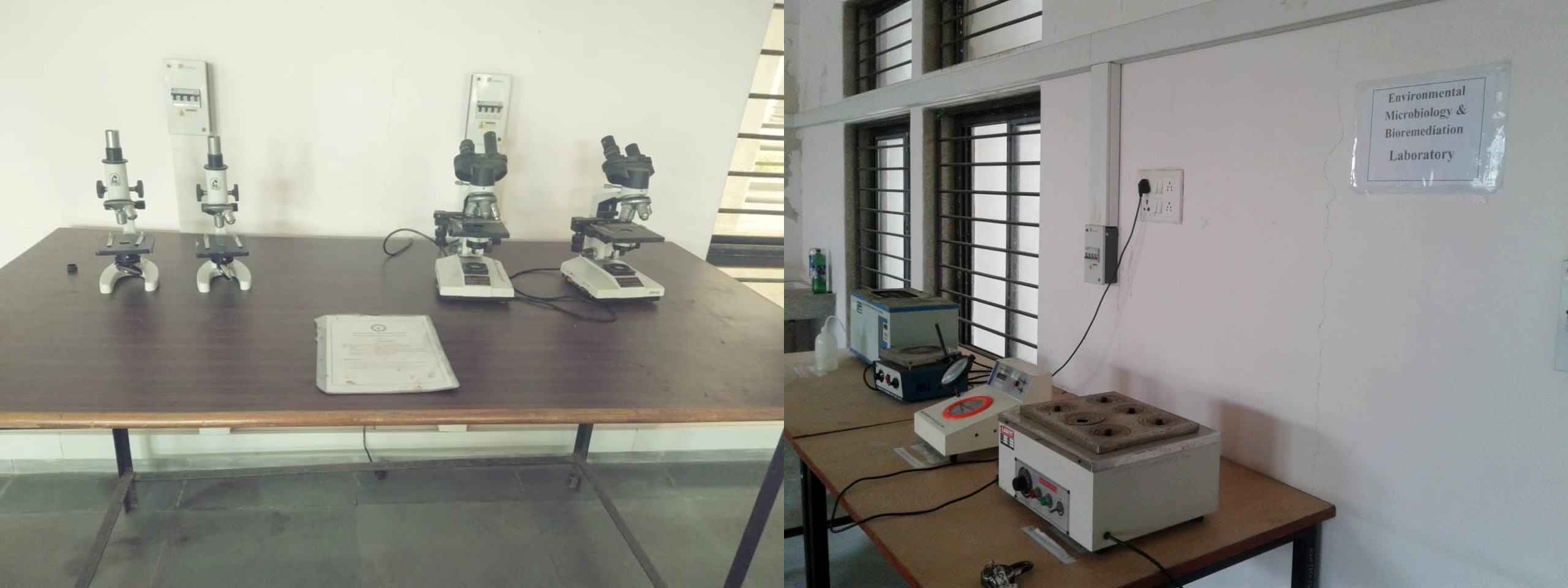
Environmental Microbiology and Bioremediation
In the Environmental Microbiology laboratory, students get familiar with different types of microorganisms. In this laboratory they learn various types of staining techniques to classify the various types of microorganisms, how to isolate the various types of culture, how to recognize and count the bacterial colony developed etc. in the context of Environmental Engineering field.
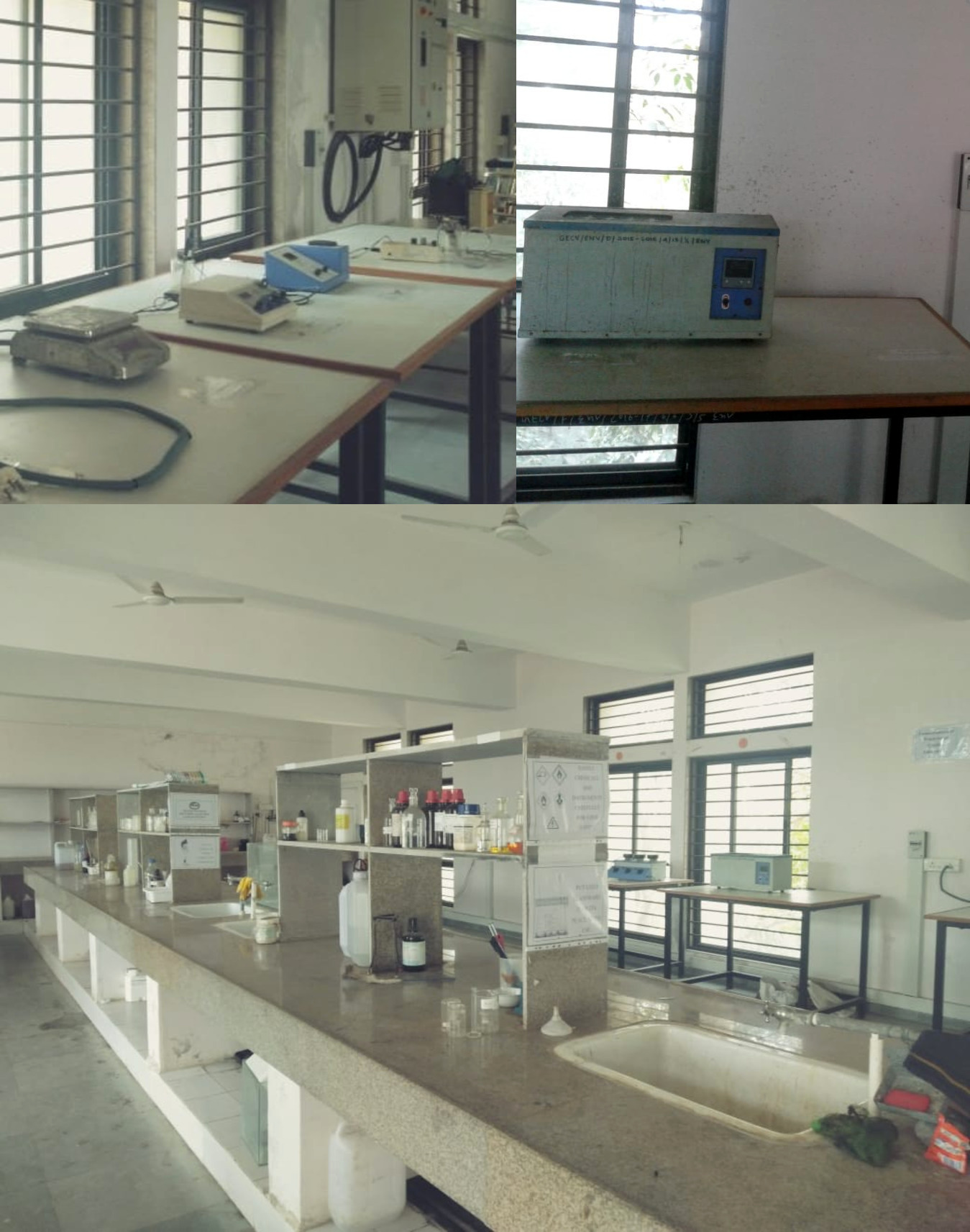
Environmental Chemistry -I & Fundamentals of Wastewater Quality
Water and Waste water treatment is the main working area of Environmental Engineers. For effective treatment basic water and waste water quality parameter must be known. In this laboratory basic water and waste water quality parameters like pH, Hardness, Solids, Turbidity, Color, Chemical Oxygen Demand, Biochemical Oxygen Demand, Various Metal and Non-metal Compounds present in water and wastewater etc. should be determined and students learn how to determine above parameter in the laboratory.
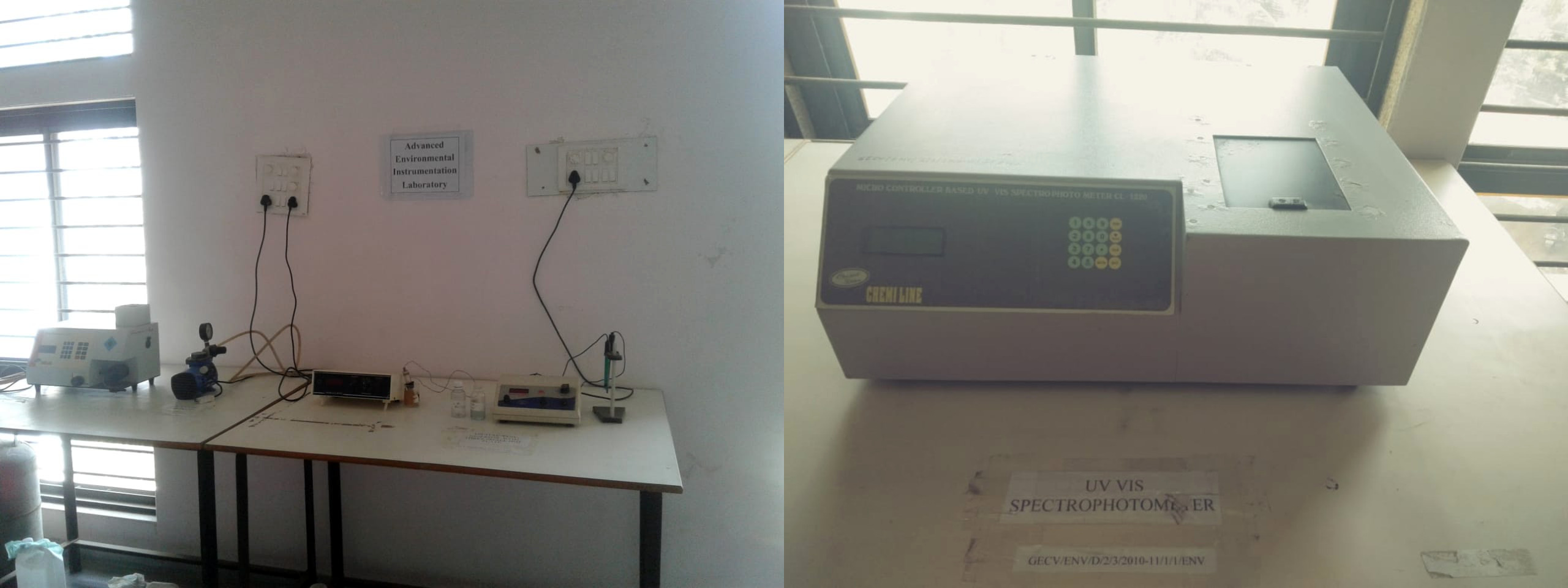
Advance Environmental Instrumentation
Various types of new organic and inorganic chemicals are synthesized day by day and ultimately introduced in our various water systems as a pollutant. Their quantity is very less in micro grams but their negative impact on the Environment is significant. In Advance Environmental Instrumentation some of the conventional water and wastewater quality parameter like pH, DO, TDS and some other pollutants which are present in water and wastewater in the very less quantity e.g Micro gram (Various types
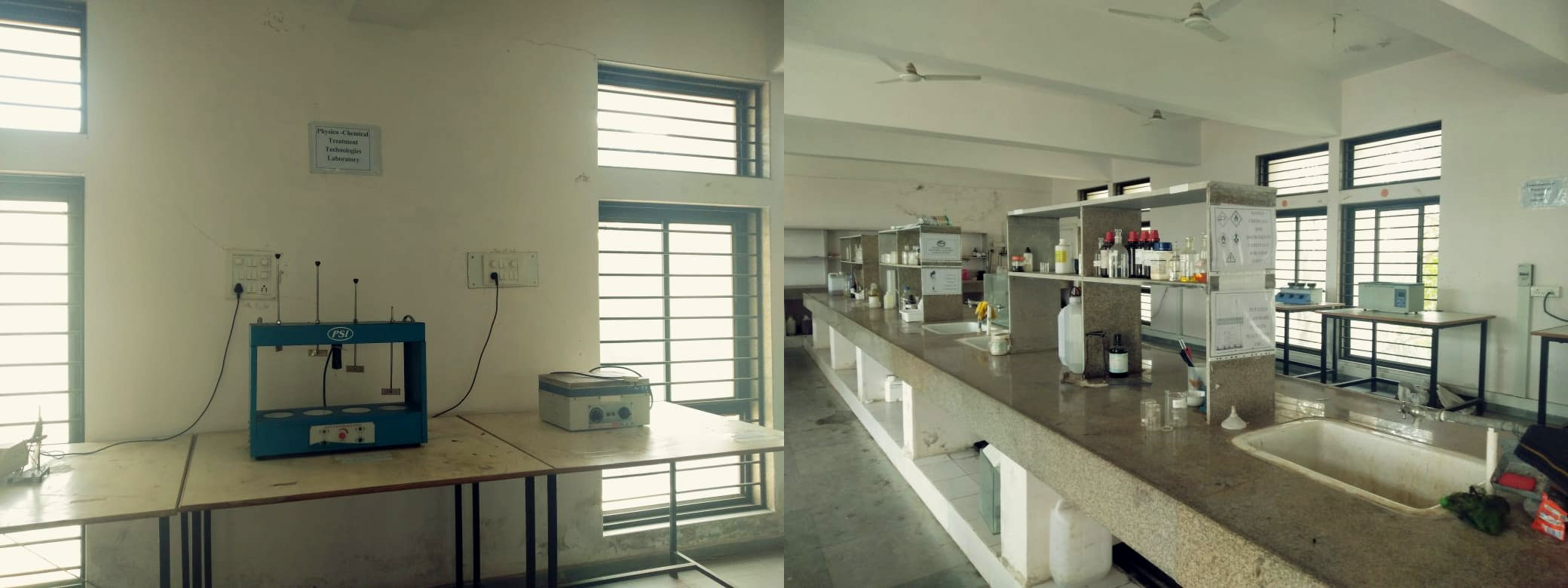
Physico- Chemical Treatment Technologies
Some of the pollutants are removed from Water and Wastewater system using Physical and Chemical properties of pollutants, for example turbid water is cleaned up using Alum in the villages. Such kind of various Physical and Chemical treatment processes used in water and wastewater Engineering in the Environmental Engineering Field is explain and demonstrate in this laboratory so students can able to understand various treatment processes and basic fundamentals behind the removal of various pollut


